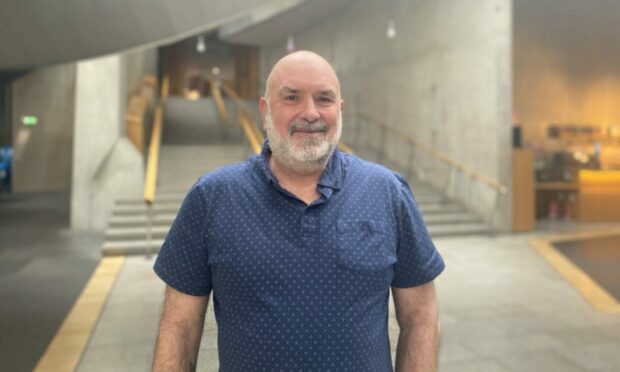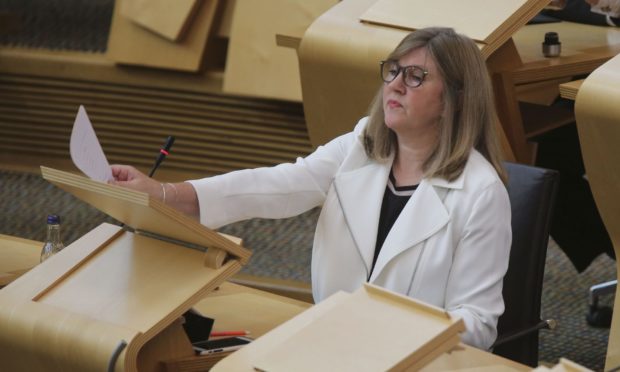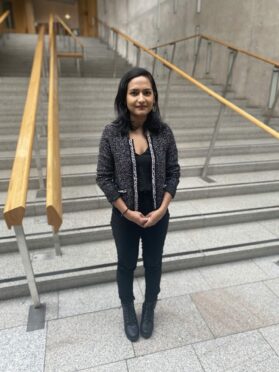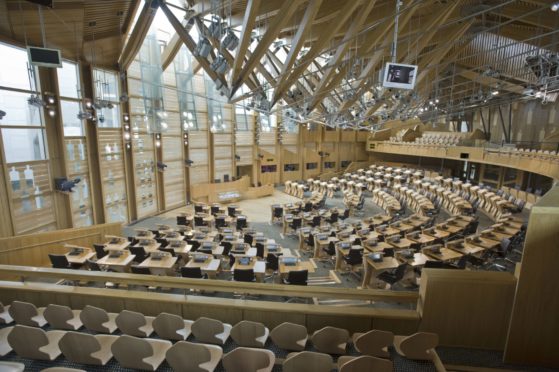Ordinary citizens selected randomly from Aberdeen to Argyll have described how they are helping to make the Scottish Parliament more relevant to the public.
And at least one of them admits they went in with little love for politics or politicians.
But through their work, officials at Holyrood now have 17 recommendations to bring parliament closer to the people.
They include taking parliament out on the road to reach people far from Edinburgh, and to set aside time in parliament for public questions to the government.
Ronnie Paterson, 59, a retired police officer who served in Aberdeenshire, said he knew nothing about Scottish politics when he was asked to join the panel.
‘I wanted to be open minded’
“I was picked by a random letter through the door asking me to participate and I don’t think I had a really good reason to say no,” he said.
“I don’t really like politics and I don’t really like politicians much.
“But I wanted to go in open-minded and take it as it comes, so I didn’t do any research or find out anything about politics.”
Mr Paterson, originally from Laurencekirk, joined the wider group of people at the Scottish Parliament several times in October and November to learn about how it works and say what they think needs to be improved.
You see some really childlike behaviour in parliament.
– Retired police officer Ronnie Paterson.
He stressed how important it is for members of the public to trust those in charge.
Mr Paterson, who now lives in Kincardine, Fife, said: “You would like to think MSPs have the same ethics as we do and will do the right thing, but you see some really childlike behaviour in parliament.
“Without proper ethics there is a void which creates distrust and no confidence.
“But that will come across from this group because that is the first thing I said – we need trust and honesty in our government, the MSPs and the parliament.”
‘I ended up being quite vocal’
Some on the group were already clued up and said getting picked felt like “winning the lottery”.
Anna Milne, 35, from Aberdeen is mum to 22-month-old Magnus and works part-time in Boots.
She said she “loves” political debate and was excited when she got a letter in the post asking her to take part.
Initially she thought she would just listen to what others had to say – but surprised herself and got really involved.
Ms Milne said: “I was not sure I would be able to make a difference, even though I am interested in politics.
“I didn’t know what to expect but I ended up being quite vocal.”
Ms Milne said the random selection process might help tackle perceptions of central belt bias in parliament.
Group member Gregor Seymour, 59, from Dunoon, had never been to the parliament building.
The retired chemist is also a carer for his mum and was able to bring this expertise into the recommendations.
“My ambition is to have direct representation in the future and for people to be able to participate in every aspect of the parliament and the government,” he said.
“I would like to see politics working for people and improve how things are done in Scotland.”
He said discussions with friends in Dunoon led to more local interest in politics.
“I want to be able to help people in smaller communities like mine to get involved in things locally and nationally,” he said.
Showing a willingness to change
Hamish Duthie, 65, from Inverurie in Aberdeenshire, believes parliament will become more accessible thanks to their work.
The retired solicitor said: “It has really been invaluable to find out what the Scottish Parliament actually does and can do.
“I think the fact the Scottish Parliament is willing to do this shows a willingness to try and improve things after 22 years.
“I definitely feel more involved now.”





Conversation